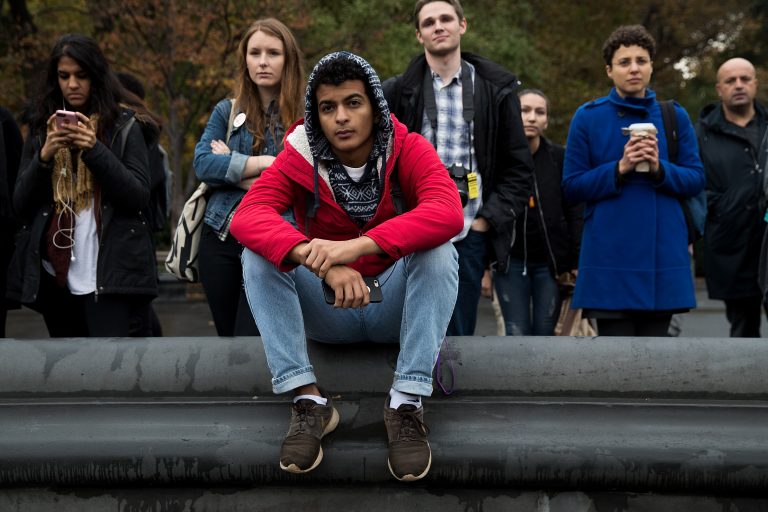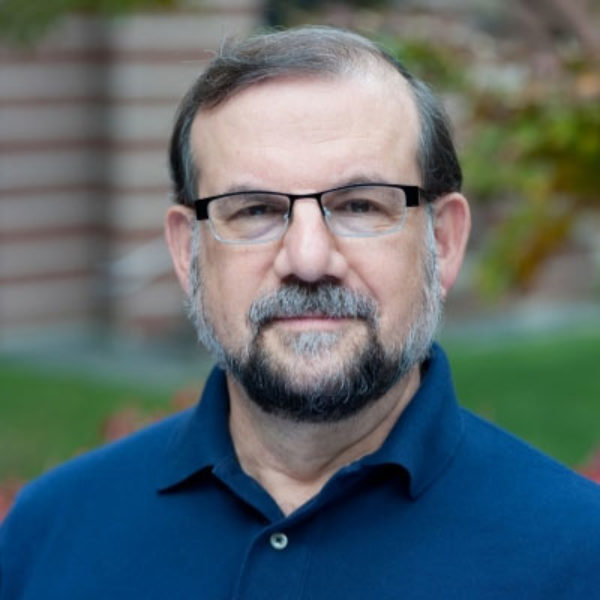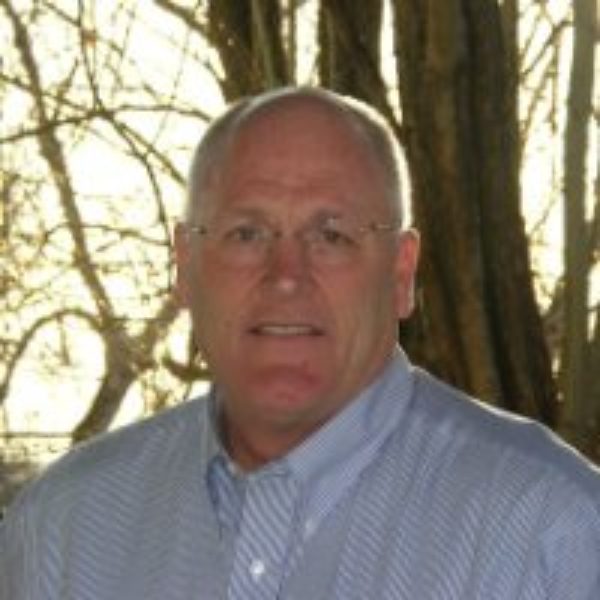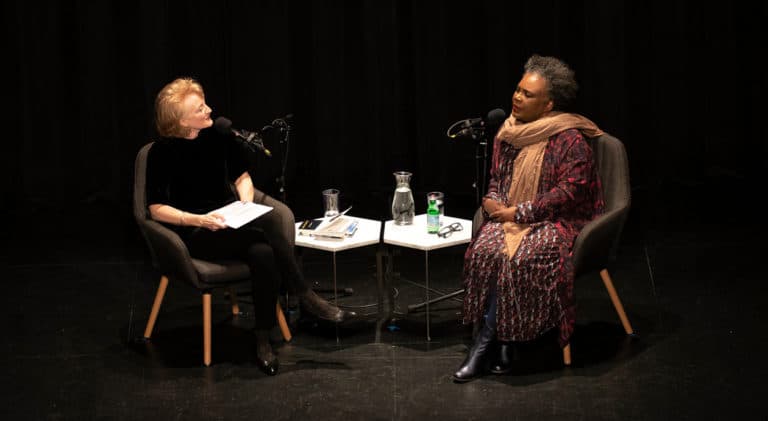
A group of mostly college students and young people listen to speakers discuss their grievances with the policies of Donald Trump and Mike Pence during a gathering in Washington Square Park, November 9, 2016 in New York City. Image by Drew Angerer/Getty Images, © All Rights Reserved.
What Unites Us Is Greater
For many in this country the 2016 election was a cause for sorrow and consternation. For others, it has been a moment to exalt and rejoice. The chasm between supporters of the two candidates seems as large as the nation itself. It is as though there were two distinct and irreconcilable Americas uncovered on November 8.
We write together although we represent very different parts of the American polity. One of us is a Mormon bishop, living in red-state Utah, who until the President-elect was nominated counted himself a life-long Republican. The other is a Jewish rabbi, living in true-blue New York City, and a life-long Democrat. Yet what unites us is so much greater than the divisions implied by those descriptors.
As religious leaders who embrace the freedoms that America affords us, we both are disturbed by the rancor and rhetoric of the election campaign. Secretary Clinton had been famous for the listening-tour she undertook when she ran for senator. In this campaign, however, she ignored a significant segment of the population, many of them former Democrats, and dismissed them as a “basket of deplorables.” This was an insult to many Americans and was not easily forgiven. President-elect Trump, for his part, ran a campaign that countenanced xenophobia, misogyny, racism, Islamophobia, and anti-Semitism. It deployed a barrage of hateful rhetoric and condoned white supremacist memes. We pray that such language is behind us now and that both sides repent of their political sins.
This elevation of party and partisanship failed America. We cannot afford to be divided in this fashion. We cannot continue to be red America versus blue America. Only as a United States of America can we find a way forward, together. The great religious principal that should guide us is to “love our neighbor as ourselves.” So we must stand against any attempt to marginalize Muslims or any other religious minority.
As a Jew and a Mormon, we know only too well the horrible consequences of such demonization of the religious other. We must remember that there were Muslims in this land even before we became a country. We must remember the indigenous religions of this country: those of the native Americans and that of the Church of Jesus Christ of the Latter Day Saints. Judaism, Christianity, and Islam all share the notion that we stem from common ancestors: Adam and Eve. We are one great family of American citizens, no matter what religion, what God we worship, or how we worship.
As we think of our common ancestry, virtually all of us, no matter whom we voted for, can relate to the ideal that we are a “nation of immigrants.” Whether ourselves, our parents, our grand-parents or perhaps further back in history almost all of us have immigrant pasts. This country was made great by the labor and imaginations of immigrants. We must embrace the immigrant, most especially the refugee population, whether we want to keep stronger together or make America great again.
We literally are sickened by the poor state of healthcare and the crisis of gun violence. We call for a continued reform of our insurance practices so that even more Americans can have access to healthcare. We call for a renovation of our medical practices, putting patient care and financial efficiency before profits. And we call for a sensible gun regulation policy that respects the Second Amendment of our constitution while ending the scourge of gun violence.
We share common hopes for our nation, and for our children and grandchildren. We invite everyone to work for one America. There is a way forward. It is not the path of partisan politics. Nor can it be the path of winner takes all. Rather, it is the straight path which begins with personal righteousness, justice, and equity. The biblical precept of love serves as a good touchstone to judge our actions. If we could but do for our neighbors as we wish for ourselves, we can be “one nation under God indivisible with liberty and justice for all.”
This essay was originally published in TIME and is reprinted here with permission of the authors.


